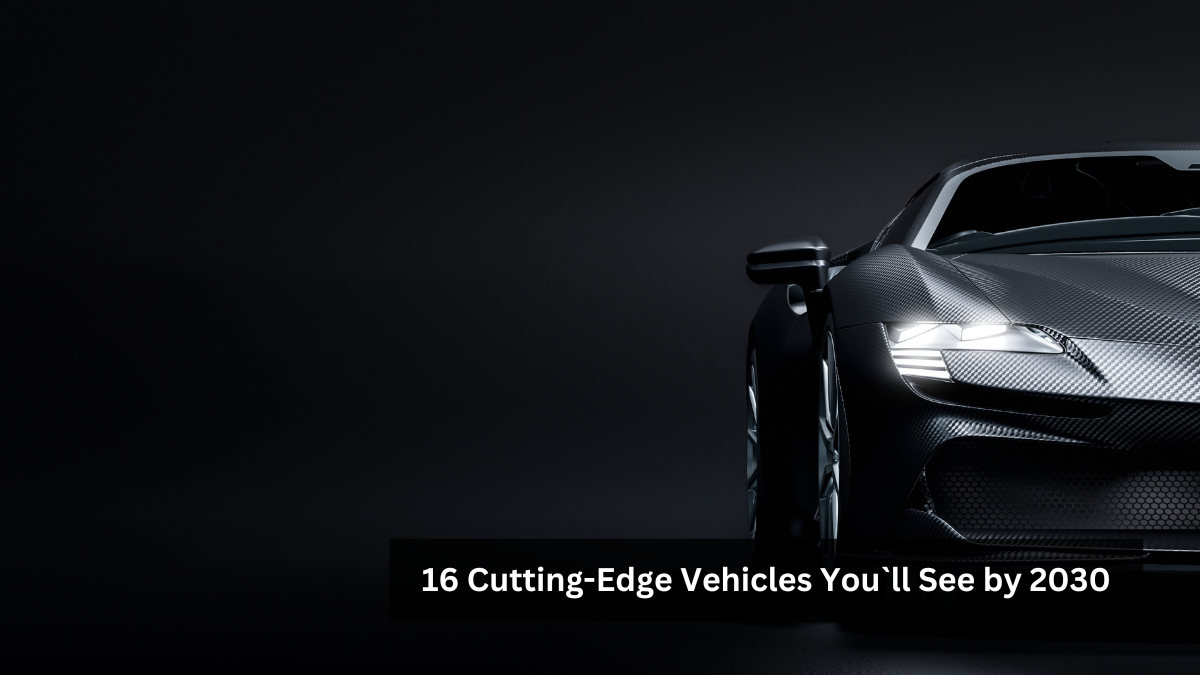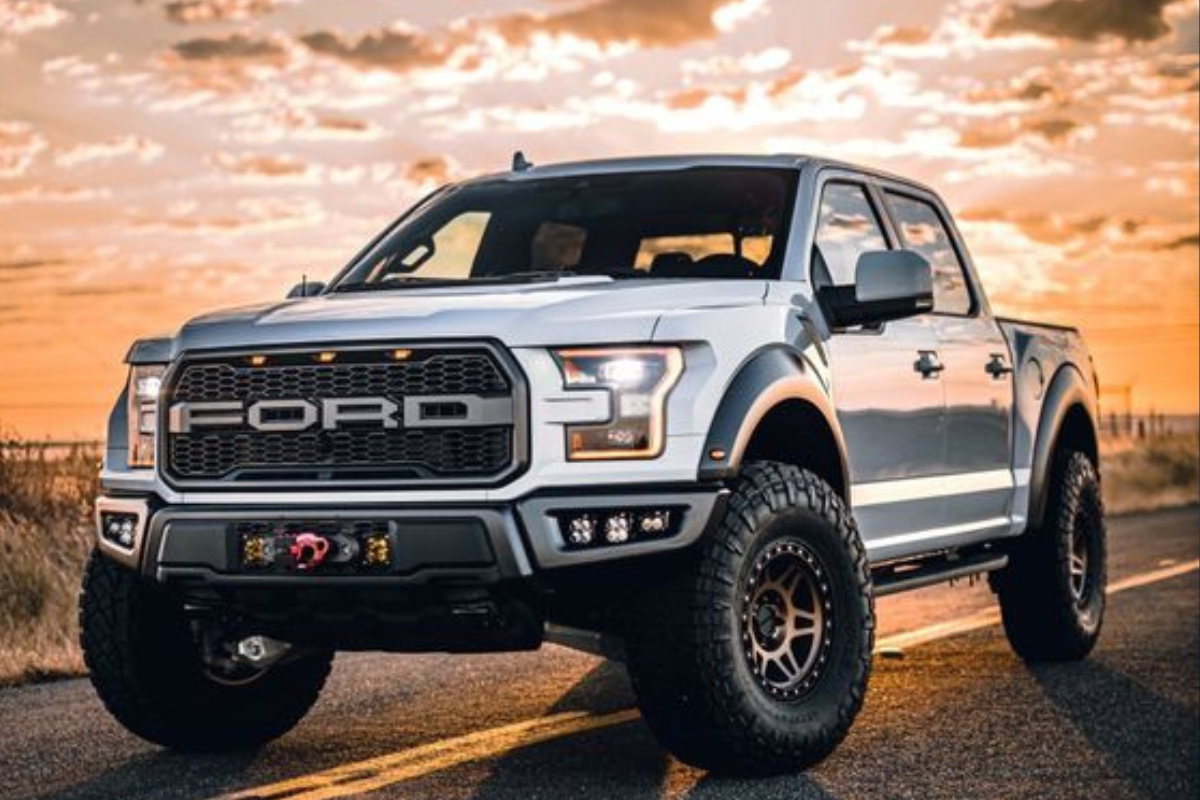The automotive sector is about to undergo a radical makeover. The cars we drive (or rather, those that drive us) will be very different from what they are today by 2030. The future holds an amazing array of cutting-edge autonomous driving, electric propulsion, sustainable design, and artificial intelligence (AI) cars that will completely reinvent mobility. Here are 15 futuristic vehicles that you should expect to see around 2030.
16 Cutting-Edge Vehicles You`ll See by 2030
Tesla Cybertruck

By 2030, the Tesla Cybertruck, with its unconventional design already creating waves, will completely revolutionize electric pickup trucks. With its bulletproof glass and ultra-hard stainless steel exoskeleton, the Cybertruck is a rugged yet environmentally friendly vehicle. It might have better battery life, sophisticated AI driving skills, and a fully autonomous driving mode by 2030, enabling users to easily traverse even the most difficult terrain.
Mercedes-Benz EQS
Mercedes-Benz has always been a symbol of luxury, and the EQS is no exception. The EQS will likely be the flagship of Mercedes’ all-electric future, featuring a seamless blend of luxury and cutting-edge technology. Expect this car to offer enhanced autonomous features, ultra-fast charging, and advanced AI that responds to driver commands and passenger needs.
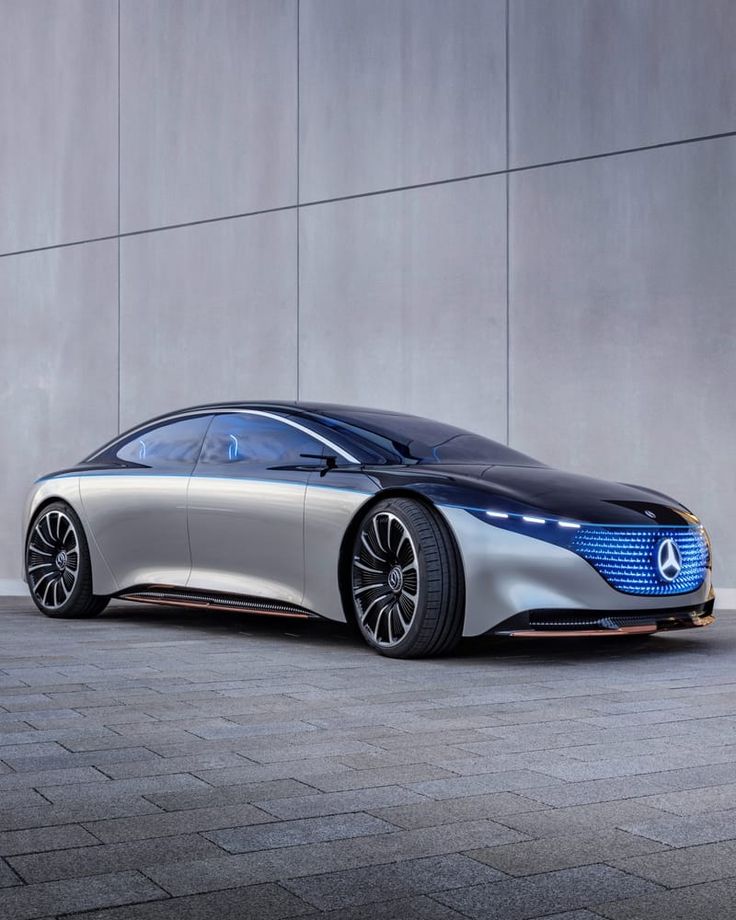
Rivian R1T
One of the most anticipated electric vehicles is the Rivian R1T. It is well-positioned to play a significant role in sustainable mobility thanks to its adaptable design, off-road capabilities, and emission-free technology. By 2030, Rivian might provide drivers wanting adventure with even more sophisticated autopilot systems, solar charging alternatives, and stronger battery systems.
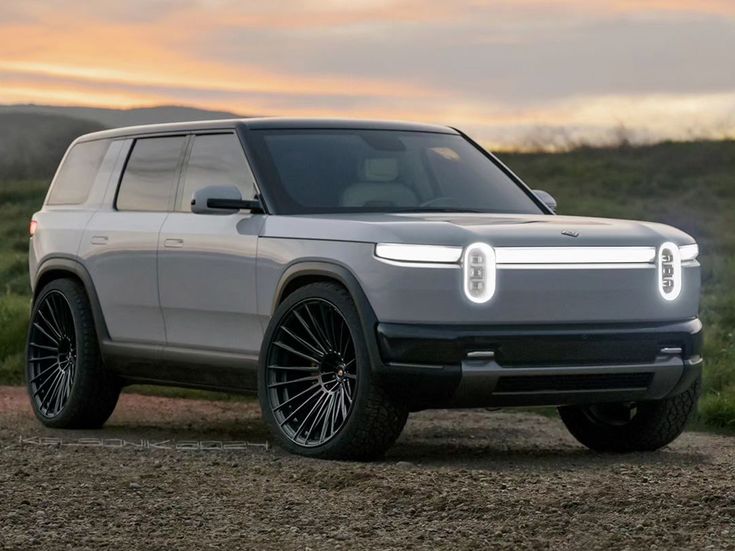
Waymo Autonomous Vehicle
As one of the pioneers of self-driving technology, Waymo is leading the race toward fully autonomous vehicles. By 2030, Waymo will have likely perfected its self-driving system, offering a car that requires no human input. This will revolutionize public transportation, ride-hailing services, and personal vehicles, making driving a thing of the past.
Also Read :-Self-Driving Cars! What to Expect Today, Tomorrow, and in the Future
Lucid Air
One of the most opulent and functional electric automobiles is expected to be the Lucid Air. With its emphasis on state-of-the-art interiors and range of more than 500 miles, Lucid is raising the bar for EVs. This car may have AI-enabled controls, seamless smart home networking, and energy-saving power systems by 2030.

Audi Aicon
Audi’s Aicon concept vehicle hints at what the luxury autonomous vehicle will look like by 2030. This electric, self-driving car does away with the traditional steering wheel and pedals, focusing instead on passenger comfort. Equipped with AI, smart communication, and immersive infotainment systems, the Aicon is designed for a world where driving becomes optional, and relaxation is paramount.
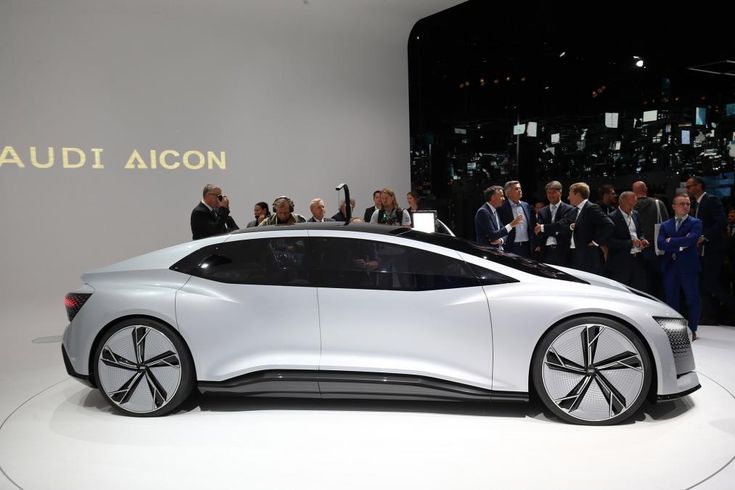
BMW iNEXT
BMW’s iNEXT is expected to be a ground-breaking electric SUV that combines cutting-edge style and performance. This represents a sneak peek at the direction luxury mobility will take by 2030, complete with Level 4 autonomous driving, speech recognition, and sophisticated driver assistance technologies. To keep drivers in contact with the outside world, increasing integration with AI and cloud-based services should be anticipated.
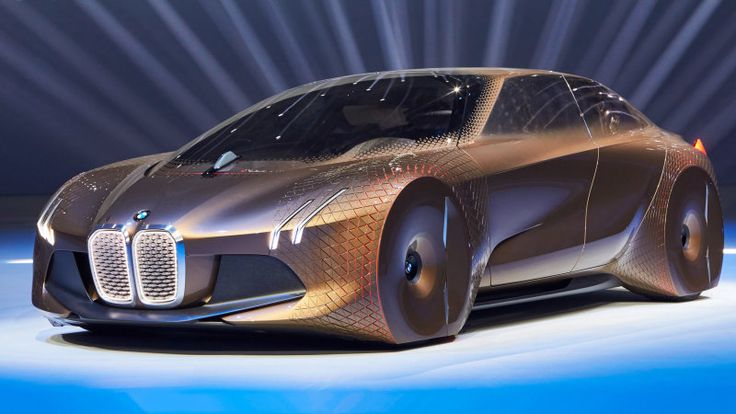
Toyota LQ
The Toyota LQ represents Toyota’s vision for human-centered mobility. Equipped with an AI-powered assistant named “Yui,” this car learns from its driver to deliver a personalized driving experience. By 2030, the LQ could boast full self-driving capabilities, intuitive in-cabin health monitoring, and smart systems that adjust to your mood and preferences.
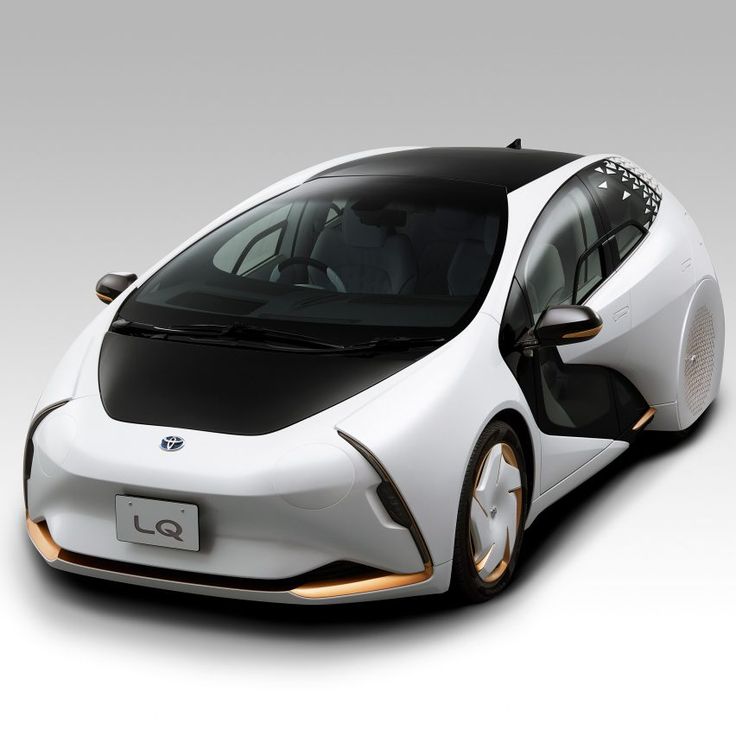
Volvo 360c
Volvo created the 360c concept car with the idea that people will not need to drive in the future. This totally electric, driverless car can double as a living room, office, or even a place to sleep. With an emphasis on efficiency and safety without sacrificing style, the 360c is poised to completely reimagine both short- and long-distance travel.
Porsche Taycan Cross Turismo
The Porsche Taycan Cross Turismo is Porsche’s all-electric crossover, combining luxury with performance. By 2030, Porsche may offer upgraded battery technology for extended range, smarter navigation systems, and enhanced driving modes for an unparalleled driving experience that pushes the boundaries of electric performance.
Also Read :- 8 Aspects That Make the Rolls-Royce Ghost a Masterpiece
Hyundai Prophecy
Hyundai’s futuristic-looking Prophecy concept vehicle exemplifies the company’s dedication to cutting-edge technology and design. With AI integration, intelligent steering controls, and autonomous driving, the Prophecy is a car that looks to the future and should be a serious contender by 2030. Anticipate it to have eco-friendly materials and enhanced battery efficiency.
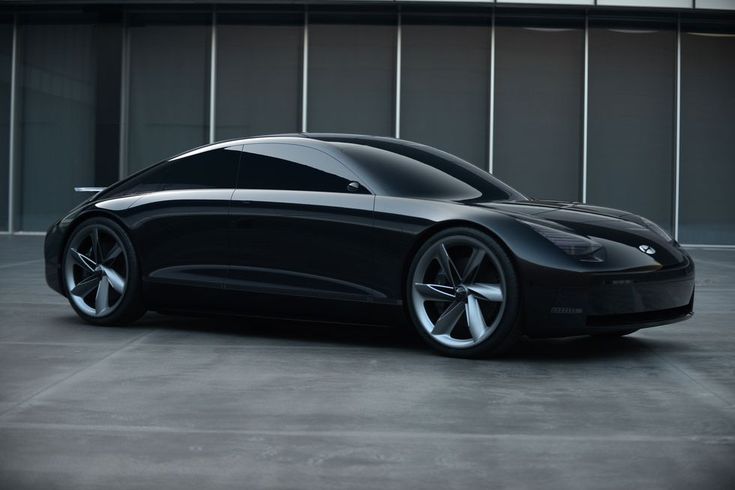
Fisker Ocean
With its emphasis on sustainability, the Fisker Ocean is an eco-friendly electric SUV with recycled materials used for its interior and a solar roof. The Ocean will probably have improved solar charging capabilities by 2030, enabling on-the-go recharging without totally depending on charging stations. Fisker might potentially include developments in driver-assistance technologies and intelligent navigation.
Aptera Solar Car
The Aptera is a revolutionary solar-powered vehicle that could change how we think about energy consumption in cars. By 2030, Aptera’s solar-powered technology could offer near-indefinite driving range in sunny climates, effectively reducing the need for traditional charging methods. Lightweight and aerodynamically designed, it’s a futuristic vision of sustainable transportation.
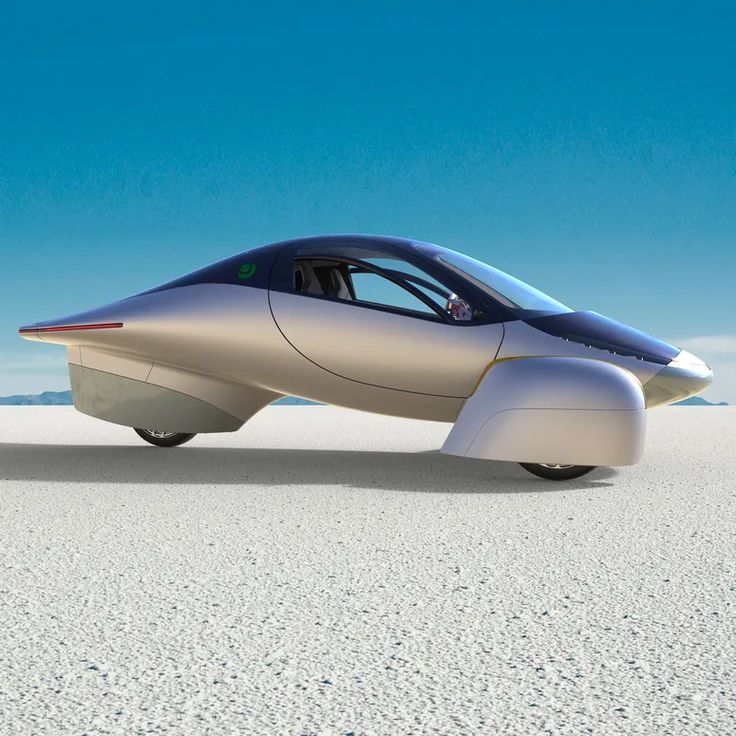
Aston Martin Lagonda Vision
Aston Martin’s Lagonda Vision concept teases a futuristic, ultra-luxurious, driverless electric car. By 2030, the Lagonda is probably going to have better AI controls, electric motors that use less energy, and more autonomous driving capabilities. The Lagonda has the potential to change the definition of premium travel with its emphasis on opulent interiors.
Rolls-Royce Vision Next 100
The Rolls-Royce Vision Next 100 embodies luxury and technological innovation in a future where autonomous driving reigns supreme. This concept vehicle offers customizable interiors, an AI-powered concierge service, and a fully autonomous driving system. By 2030, expect even more personalization options, with AI able to cater to individual tastes and needs while passengers travel in opulence.
Automobiles in the Future by 2030
The state of transportation will be very different from what it is today by 2030. Not only will the transition toward electrification, automation, and sustainability change how we travel, but it will also change how we view cars in general. Here’s a closer look at the major themes that will shape future automobiles:
- Electric Dominance: The move towards electric vehicles (EVs) is already well underway, but by 2030, EVs will likely dominate the market. Governments across the world are implementing policies to phase out internal combustion engines, leading to the development of more efficient, affordable, and high-performance electric vehicles.
- Autonomous Driving: Self-driving technology will transform the concept of driving altogether. Fully autonomous cars will allow passengers to relax, work, or even sleep while their vehicle navigates the roads. Companies like Waymo, Tesla, and General Motors are already pioneering this technology, with significant advancements expected by 2030.
- AI Integration: Artificial intelligence will play a crucial role in the vehicles of the future. From smart assistants that can adjust your car’s settings based on your preferences, to advanced safety features that can predict and prevent accidents, AI will make driving safer, more convenient, and highly personalized.
- Sustainability Focus: The cars of 2030 will not only be electric but will also focus on sustainability in every aspect, from manufacturing to materials. Expect to see cars made from recycled materials, with solar panels integrated into their design, and energy-efficient systems that reduce their overall environmental impact.
- Luxury and Customization: As cars become more autonomous, the focus will shift from driving dynamics to interior luxury and customization. Autonomous vehicles will double as mobile living spaces, allowing passengers to tailor their travel experience with personalized features, entertainment systems, and even health monitoring technology.
In conclusion, there will be a significant change in the way we move by 2030. Sustainable technological advancements, AI-powered systems, and electric vehicles will dominate the automotive industry. The future of cars promises something for everyone, bringing efficiency, thrills, and convenience to the road—whether you are searching for luxury, performance, or environmentally friendly solutions.

